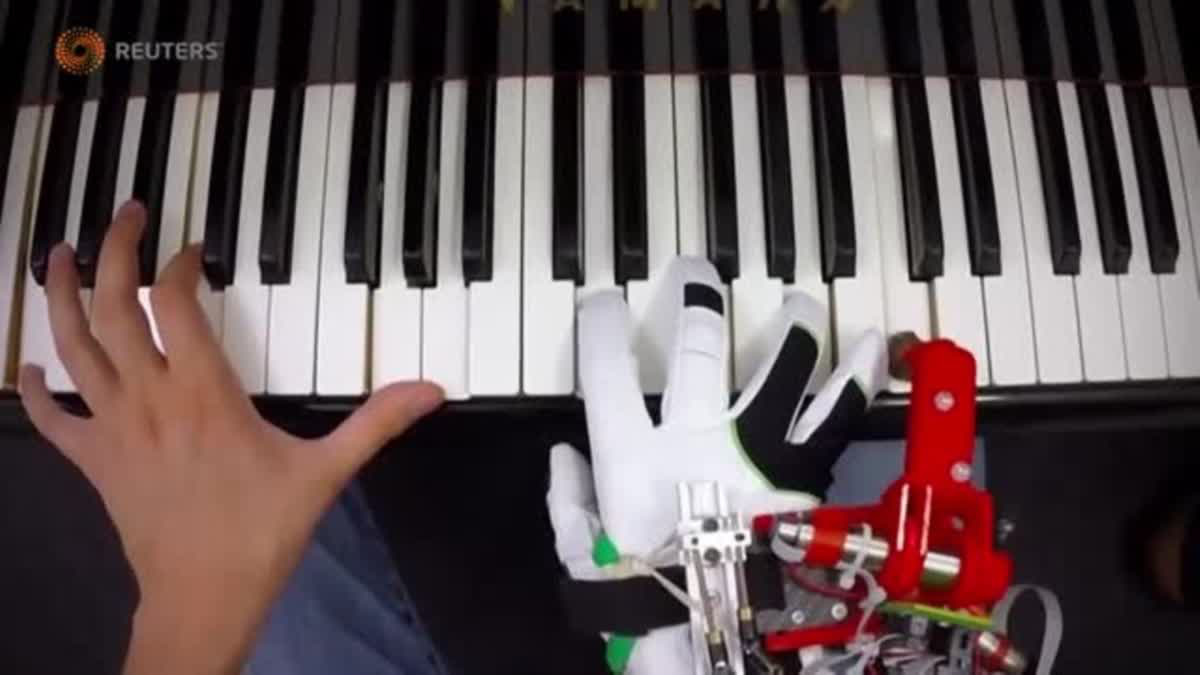多出来的一根机械手指会影响人弹奏钢琴的能力吗?

British researchers have explored how a robotic finger can affect a person’s ability to play the piano. The experiment involved attaching a robotic finger on the right hand of 12 test subjects. Six of the individuals were piano players. Six were not.
The leader of the project was Professor Aldo Faisal, a neuroscientist(神经学家) at Britain’s Imperial College of London. Being a piano player himself, he said he wondered how his playing ability would be affected if he had an extra finger. “So I started really with a robotics challenge,” Faisal said. “Can we build a robotic thumb that can sit on the opposite side of the right hand and play music with it?”
The robotic finger was controlled by electrical signals produced by the foot movements of the piano players. Faisal said the robotic finger felt very unnatural and was difficult for players to get used to at first. But after a few hours using the device, he said it almost felt like “an extension of you.”
Faisal noted that within an hour of being fitted with the robotic finger, six players had learned to use it effectively with the piano keys. “There’s a dedicated area of your brain responsible for every single finger,” Faisal said. “If I give you an eleventh finger...are you processing it the same way as you’re processing a regular limb?”
Researchers involved in the experiment reported that the six pianists and six non-playing volunteers all quickly adapted to using the extra thumb. They said this result suggests people are not limited to using an extra finger only for things they already know how to do.
“The fact that you can actually play with eleven fingers...has to do with how your brain is actually wired up,” Faisal said. “So what we can say is it’s a proof of existence. We can do it. So the next challenge would be, can we do two thumbs, so 12 fingers?” He added, “It’s a very exciting moment in time now to see what we can do.”
本时文内容由奇速英语国际教育研究院原创编写,未经书面授权,禁止复制和任何商业用途,版权所有,侵权必究!(作者投稿及时文阅读定制请联系微信:18980471698)